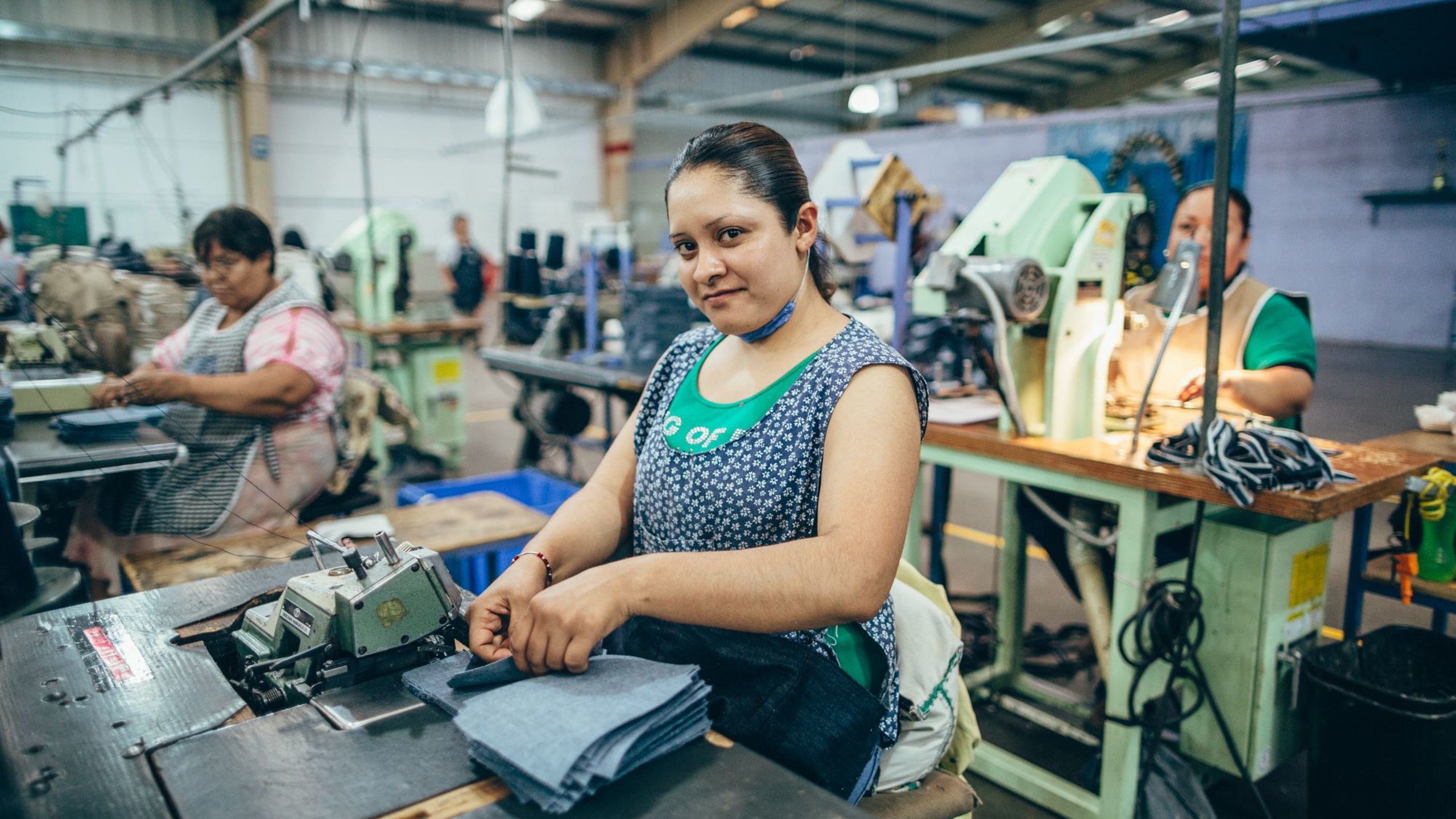Yo Quiero, Yo Puedo, Mexico
10 June 2017 C&A Foundation

The Yo Quiero, Yo Puedo (YQYP) initiative was funded by Fundacion C&A, Mexico and implemented by the Mexican Institute for Family and Population Research (Yo Quiero Yo Puedo - IMIFAP). It aimed to empower more than 2,500 employees (workers and mid-level supervisors) within Mexican apparel factories between 2014 and 2016. The objective was to 'promote the integral wellbeing of the workers in the textile industry in order to improve productivity and to favour the guidelines of codes of conduct of international companies attached to the principles of the Global Pact 2020.' This independent evaluation took place at the end of 2016.
The findings demonstrate that YQYP contributed to a range of different outcomes in the lives of workers and supervisors, including improved interpersonal relationships, job satisfaction and productivity, gender equality, and health and self-care:
“I feel very well, very happy. I enjoy my job, I feel that working in teams is good, the more communication we have as a team the easier we achieve our objectives, right? We didn’t use to have much communication, so we didn’t work as a team, we weren’t well organised and there was a bit of a mess. We had returns and we were delayed in our deliveries, so we had to work extra time and all this was because of a lack of communication and teamwork. Since we have the training courses we have improved and we’re still improving.” - Female Worker from Year 1 of the YQYP Initiative
Results
Results show that YQYP achieved positive outcomes in the following areas:
job satisfaction and productivity, relationships at work and in the household, and gender equality. It also produced positive changes in health and self-care, though to a lesser degree. The YQYP initiative did not produce its intended positive outcomes in the area of economic security.
The most important contribution was to improve working environments and relationships for a majority of supervisors and workers.
- The initiative contributed to a greater sense of teamwork among workers and supervisors in both years. More than half of the supervisors and workers reported that YQYP gave them a better sense of personal development and job satisfaction.
Training in effective communication and working relationships, tolerance, values, equality and working responsibilities and teamwork were the most effective activities.
- Workers, and in particular supervisors, who received training changed their behaviour and communication at work from disrespectful and even bullying relationships to ones based on respect and better communication and conflict resolution.
Negative outcomes cited in the area of health, relationships and quality of life were linked to pressure, high workload and stress reported by supervisors in particular.
- These outcomes do not relate directly to the YQYP initiative and its activities, thus the initiative 'did no harm'. However, these external factors negatively affected some of the initiative's intended positive outcomes.
Evaluation Conclusion: Overall, the evaluation reported clear evidence that YQYP has positively contributed to a range of different aspects in the lives of workers and supervisors across both years of the initiative, particularly in the areas of job satisfaction and productivity, relationships, gender equality, and overall wellbeing.
“There has been positive changes in how we support each other, in how we resolve conflicts, in helping as a team, in better willingness to work. The workshops helped us to learn to work as a team.”
Female Supervisor from Year 2 of the YQYP Initiative
